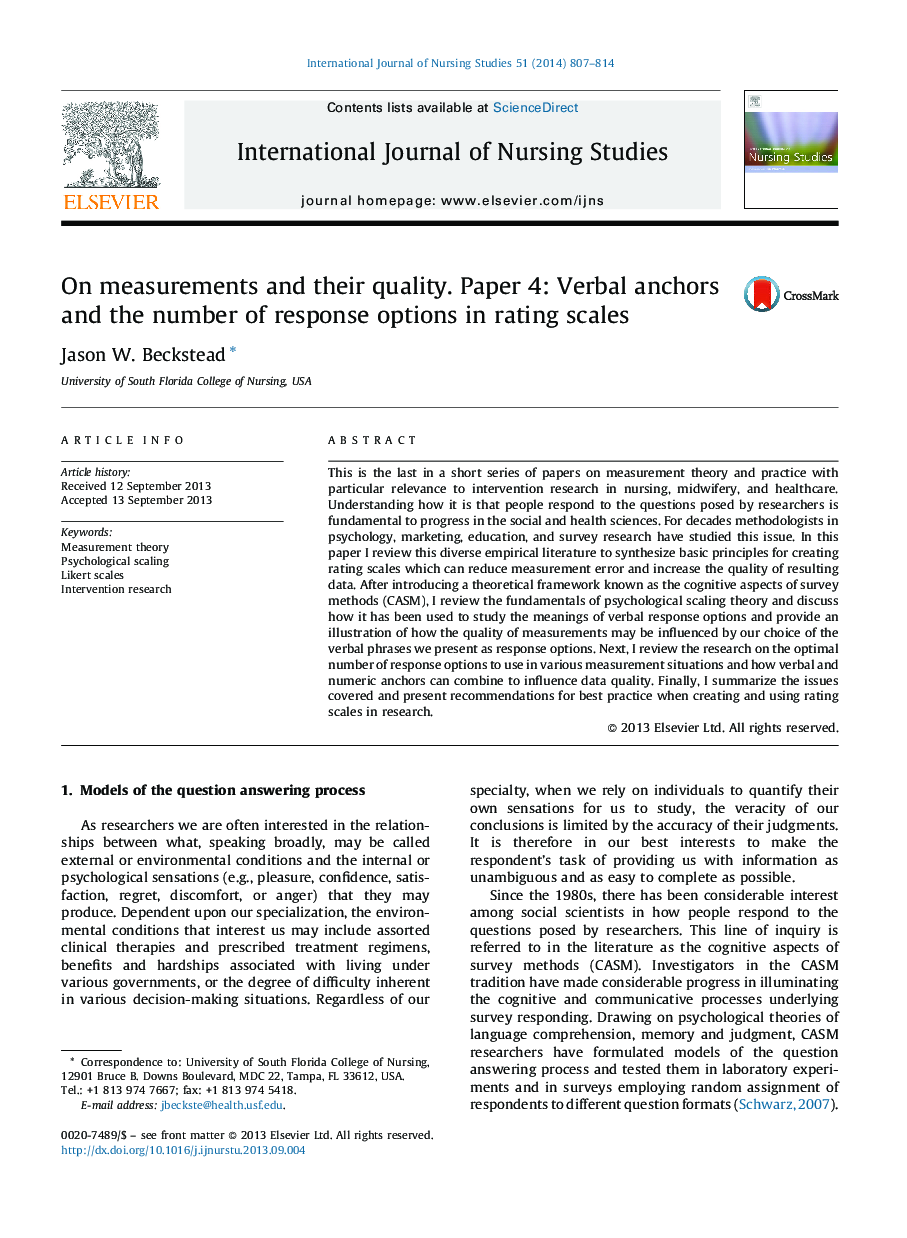| Article ID | Journal | Published Year | Pages | File Type |
|---|---|---|---|---|
| 7515990 | International Journal of Nursing Studies | 2014 | 8 Pages |
Abstract
This is the last in a short series of papers on measurement theory and practice with particular relevance to intervention research in nursing, midwifery, and healthcare. Understanding how it is that people respond to the questions posed by researchers is fundamental to progress in the social and health sciences. For decades methodologists in psychology, marketing, education, and survey research have studied this issue. In this paper I review this diverse empirical literature to synthesize basic principles for creating rating scales which can reduce measurement error and increase the quality of resulting data. After introducing a theoretical framework known as the cognitive aspects of survey methods (CASM), I review the fundamentals of psychological scaling theory and discuss how it has been used to study the meanings of verbal response options and provide an illustration of how the quality of measurements may be influenced by our choice of the verbal phrases we present as response options. Next, I review the research on the optimal number of response options to use in various measurement situations and how verbal and numeric anchors can combine to influence data quality. Finally, I summarize the issues covered and present recommendations for best practice when creating and using rating scales in research.
Related Topics
Health Sciences
Medicine and Dentistry
Public Health and Health Policy
Authors
Jason W. Beckstead,
